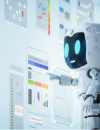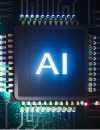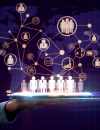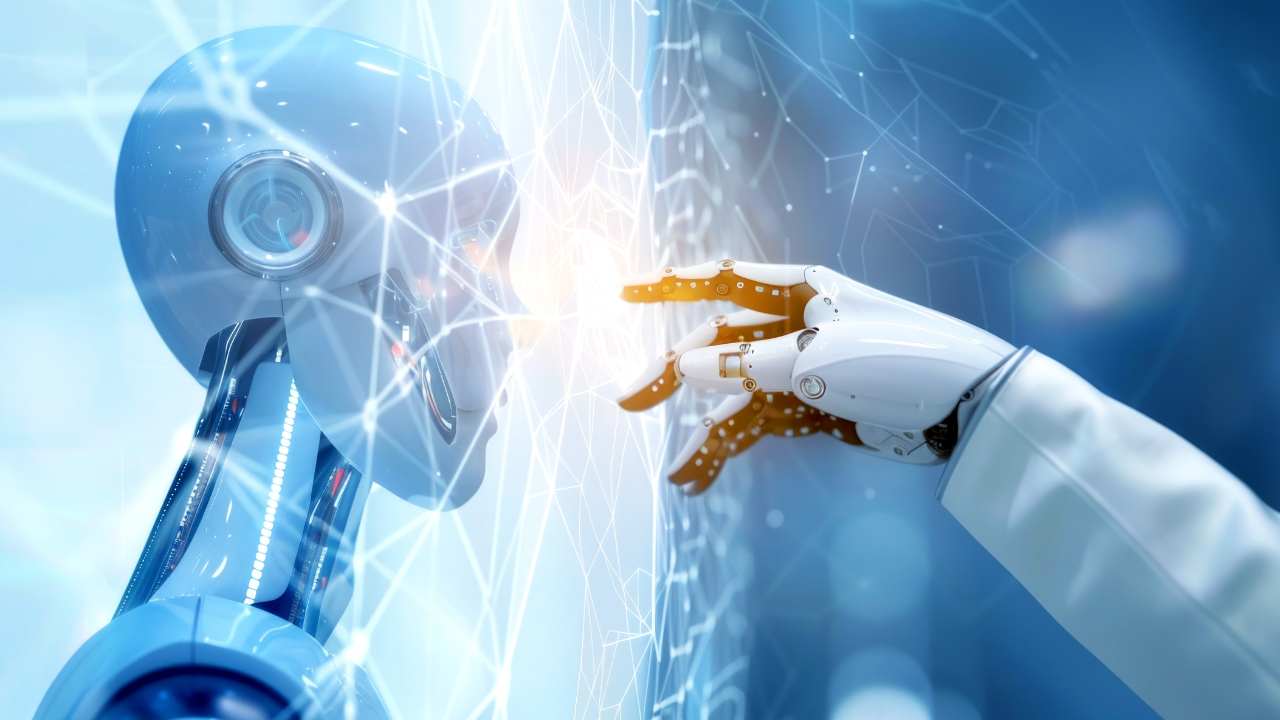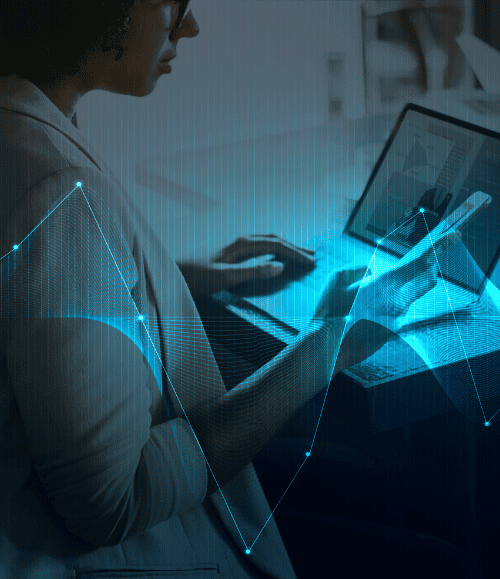How Generative AI is Shaping the Future of Work in 2025
- By: Admin
- Date: September 21, 2025
- 201 Comments
Workplaces are undergoing one of the most profound transformations in history, and Generative AI sits at the heart of this shift. By 2025, AI is not just a back-office tool—it is a collaborator, problem solver, and creative partner. From automating repetitive tasks to enabling new forms of human creativity, Generative AI is changing how people work, the skills they need, and the roles they play.
This blog explores how Generative AI is shaping the future of work in 2025. We’ll look at how it is redefining industries, transforming job roles, and creating both opportunities and challenges. More importantly, we’ll discuss how professionals and organizations can adapt to stay ahead in this AI-driven economy.
Generative AI is not replacing human talent—it is reshaping how humans and machines collaborate to create the future of work.
Table of Contents
- Why Generative AI Matters for the Future of Work
- 1. Automation of Routine Tasks
- 2. Redefining Creativity and Innovation
- 3. Personalized Learning and Upskilling
- 4. Human-AI Collaboration in Workflows
- 5. New Career Paths Emerging in the AI Economy
- 6. Ethical and Workforce Challenges
- 7. Global Implications: Remote Work and Inclusion
- Tips to Adapt to the Future of Work with AI
- FAQs About Generative AI and Work
- Start Your Generative AI Journey with BookMyLearning
Why Generative AI Matters for the Future of Work
The impact of Generative AI on the workplace is vast and undeniable. Unlike previous waves of automation that replaced physical labor, AI touches intellectual, creative, and decision-making processes. This makes it a force multiplier across industries, from healthcare and finance to marketing and education. In 2025, companies that embrace AI are not only improving productivity but also reimagining what work itself looks like.
For professionals, the rise of Generative AI represents both opportunity and challenge. It can handle routine tasks that once consumed hours, freeing up time for higher-value work. At the same time, it raises questions about which roles will evolve, which will diminish, and which entirely new careers will emerge. Navigating this landscape requires adaptability and a proactive approach to skill development.
Ultimately, Generative AI matters because it shifts the balance of human effort. Instead of focusing on repetitive execution, professionals can focus on creativity, strategy, and human connection—the qualities that AI cannot replicate. This transformation makes AI a catalyst for redefining human potential in the workplace.
1. Automation of Routine Tasks
One of the clearest impacts of Generative AI is the automation of repetitive and low-value tasks. In fields like finance, AI drafts reports, analyzes market data, and prepares compliance documents in minutes. In customer service, AI handles inquiries, resolves common issues, and escalates only complex cases to humans. By taking over these tasks, AI reduces costs and increases efficiency for businesses.
For employees, this automation means less time spent on tedious work and more focus on activities that require human judgment. Analysts who once spent hours cleaning data can now devote their time to strategic interpretation. Writers who previously produced endless drafts can use AI to create first versions and spend their energy refining insights and narratives.
However, automation also raises concerns about job displacement. The key to navigating this change is rethinking roles—not eliminating them. Professionals must learn to oversee AI outputs, ensure quality, and integrate them into workflows. In many industries, this creates new “AI supervisor” or “AI strategist” roles, ensuring humans remain central to decision-making.
2. Redefining Creativity and Innovation
Generative AI is expanding the boundaries of creativity. In design, tools like MidJourney and Adobe Firefly allow businesses to generate dozens of high-quality visuals in seconds. In marketing, AI writes personalized campaigns tailored to different audiences. In product development, AI simulations help companies explore new prototypes faster than ever before. Creativity is no longer limited by time or resources—it is amplified by AI’s ability to generate ideas at scale.
This transformation does not mean humans are less creative—it means their role is evolving. Instead of producing every detail manually, professionals act as curators, editors, and strategists. They guide AI systems, select the best outputs, and refine them into final products. In many cases, this speeds up innovation cycles and reduces the cost of experimentation.
The result is a democratization of creativity. Startups with small budgets can now compete with larger corporations by leveraging AI-powered tools. Employees across industries—not just designers or writers—can participate in creative processes. This makes innovation a shared responsibility, driving cultural shifts within organizations.
3. Personalized Learning and Upskilling
The rapid pace of AI adoption has created an urgent need for upskilling, and Generative AI itself is part of the solution. In 2025, AI-driven platforms are personalizing learning experiences for professionals. Employees receive tailored training modules based on their current skills, career goals, and industry demands. This adaptive approach ensures faster and more relevant learning compared to one-size-fits-all training.
For companies, personalized learning reduces skill gaps and improves workforce agility. Instead of sending entire teams to generic workshops, businesses can deploy AI platforms that design custom training journeys for each employee. A data analyst may receive targeted Python modules, while a marketing manager may receive AI-driven insights into customer segmentation.
For professionals, this trend makes continuous learning more engaging and achievable. With AI tutors available 24/7, employees can learn at their own pace while receiving real-time feedback. This not only boosts productivity but also future-proofs careers, ensuring workers remain relevant in an AI-dominated economy.
4. Human-AI Collaboration in Workflows
The future of work is not about humans versus AI, but humans working alongside AI. In 2025, many companies have already redesigned workflows to incorporate AI as a collaborative partner. For example, financial analysts use AI to process vast amounts of data, while they focus on interpreting results and advising clients. Similarly, healthcare professionals rely on AI to suggest diagnostic options, but the final judgment comes from doctors.
Human-AI collaboration creates a hybrid model of efficiency and creativity. Machines excel at pattern recognition, speed, and consistency, while humans provide empathy, ethics, and contextual judgment. Together, they deliver outcomes that neither could achieve alone. Businesses that embrace this collaborative approach are reporting higher productivity and better decision-making.
For professionals, this collaboration requires a mindset shift. Instead of fearing AI, employees must learn how to manage it—understanding its strengths, weaknesses, and limitations. This creates new roles such as AI Workflow Designer, Human-in-the-Loop Supervisor, and AI Strategy Consultant. These hybrid positions ensure humans remain central to innovation and oversight in the AI-driven workplace.
5. New Career Paths Emerging in the AI Economy
Generative AI is not only reshaping existing jobs but also creating entirely new career paths. In 2025, roles like Prompt Engineer, AI Ethics Specialist, and Generative Design Consultant are becoming mainstream. These positions didn’t exist a few years ago but are now essential for organizations looking to harness AI responsibly and effectively.
Beyond technical fields, AI is spawning creative and strategic careers. Marketing professionals are evolving into AI-driven content strategists, while educators are becoming AI curriculum designers. Even traditional industries like law and finance are opening roles for AI-powered legal analysts and AI compliance officers. This reflects the broad and inclusive impact of AI across sectors.
For workers, this shift underscores the importance of adaptability. Professionals who are willing to reskill and embrace emerging roles will thrive, while those who resist change risk being left behind. The AI economy rewards curiosity, lifelong learning, and the ability to combine domain expertise with technological fluency. In many ways, the jobs of the future are being written right now by how businesses and individuals respond to AI adoption.
6. Ethical and Workforce Challenges
While Generative AI brings immense opportunities, it also raises significant ethical and workforce challenges. In 2025, businesses are grappling with issues such as data privacy, misinformation, and algorithmic bias. For instance, AI-generated content can spread inaccurate information if not monitored, while biased datasets may reinforce existing inequalities in hiring or lending decisions. These risks require organizations to build strong ethical frameworks around AI adoption.
Workforce concerns are equally pressing. Automation has sparked fears of job displacement in many industries, particularly among roles heavily reliant on repetitive tasks. While AI creates new career paths, it also demands reskilling at a pace many employees struggle to keep up with. Companies that fail to invest in workforce development risk widening the gap between early adopters and those left behind.
To address these challenges, organizations must prioritize responsible AI use. This includes establishing governance boards, transparent AI policies, and accountability mechanisms. Equally, they must invest in employee training, ensuring AI adoption leads to empowerment rather than exclusion. Companies that balance innovation with responsibility will earn greater trust from employees, regulators, and customers alike.
7. Global Implications: Remote Work and Inclusion
Generative AI is also reshaping global work patterns by accelerating remote collaboration. In 2025, AI-powered tools translate languages in real time, generate meeting summaries, and create cross-cultural training resources. This has made global collaboration seamless, enabling companies to build diverse teams that span continents without the traditional barriers of time zones or language.
The rise of AI-powered remote work tools has also improved inclusivity. People from regions historically excluded from global workforces now participate in international projects with fewer obstacles. For example, AI translation allows non-native English speakers to contribute on equal footing, while AI-generated training content helps upskill employees regardless of their location or background.
However, this global expansion brings challenges too. Remote work can blur boundaries between personal and professional life, creating stress and burnout risks. Moreover, cultural differences can still cause friction if not managed thoughtfully. The organizations that thrive in this environment are those that combine AI-driven inclusivity with strong human-centered leadership practices, ensuring global teams feel supported, valued, and connected.
Tips to Adapt to the Future of Work with AI
Adapting to the AI-driven workplace requires a proactive mindset and continuous learning. The first step is to embrace AI as a collaborator, not a competitor. Professionals should learn how to use AI tools relevant to their field—whether that’s ChatGPT for writing, MidJourney for design, or GitHub Copilot for coding. Developing fluency with these tools ensures you remain effective in your role while staying ahead of peers who resist adoption.
The second step is to focus on skills that AI cannot replicate. Emotional intelligence, leadership, strategic thinking, and ethical decision-making are uniquely human strengths. By doubling down on these capabilities, workers position themselves as indispensable in a hybrid human-AI workforce. Employers are actively seeking candidates who bring this balance of technical and soft skills.
Finally, make continuous learning a career priority. Enroll in AI-focused certifications, participate in workshops, and join communities exploring the future of work. The more you engage with AI-driven trends, the better prepared you’ll be to seize opportunities as they emerge. In 2025, adaptability is the ultimate competitive advantage.
FAQs About Generative AI and Work
-
Q: Will Generative AI take away most jobs?
A: Generative AI will automate certain tasks but also create new roles. The key is reskilling—workers who adapt will thrive in new, higher-value positions.
-
Q: What industries are most affected by Generative AI?
A: Marketing, design, software development, finance, healthcare, and education are among the most impacted, though nearly all industries are adopting AI.
-
Q: What new roles are emerging in the AI economy?
A: Roles like Prompt Engineer, AI Ethics Specialist, AI Workflow Designer, and Generative Design Consultant are becoming mainstream in 2025.
-
Q: How can professionals prepare for AI-driven changes?
A: Learn AI tools, strengthen human-centric skills like leadership and creativity, and pursue continuous upskilling through certifications and real-world projects.
Start Your Generative AI Journey with BookMyLearning
Generative AI is reshaping the workplace at an unprecedented pace, but with the right preparation, it offers incredible opportunities. At BookMyLearning, our Generative AI program helps professionals build the skills needed to thrive in this future. From hands-on training in tools like ChatGPT, MidJourney, and Jasper to mentorship from AI industry experts, we prepare you to lead in an AI-powered world.
Our curriculum is designed for professionals across industries, combining practical projects, certifications, and career support. Whether you’re an aspiring manager, creative professional, or technical specialist, you’ll gain the confidence to integrate AI into your workflows and stay ahead of the curve.
Start your Generative AI journey with BookMyLearning today and future-proof your career in 2025 and beyond!

